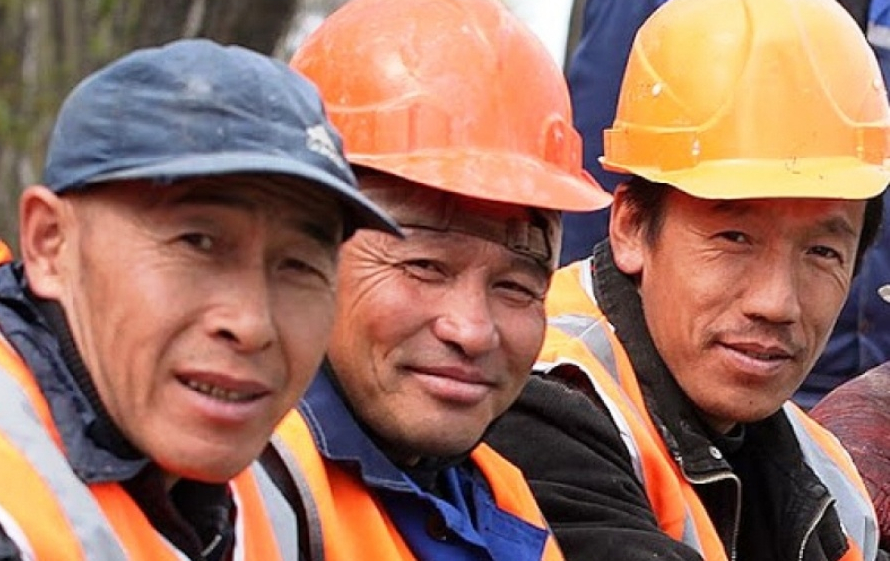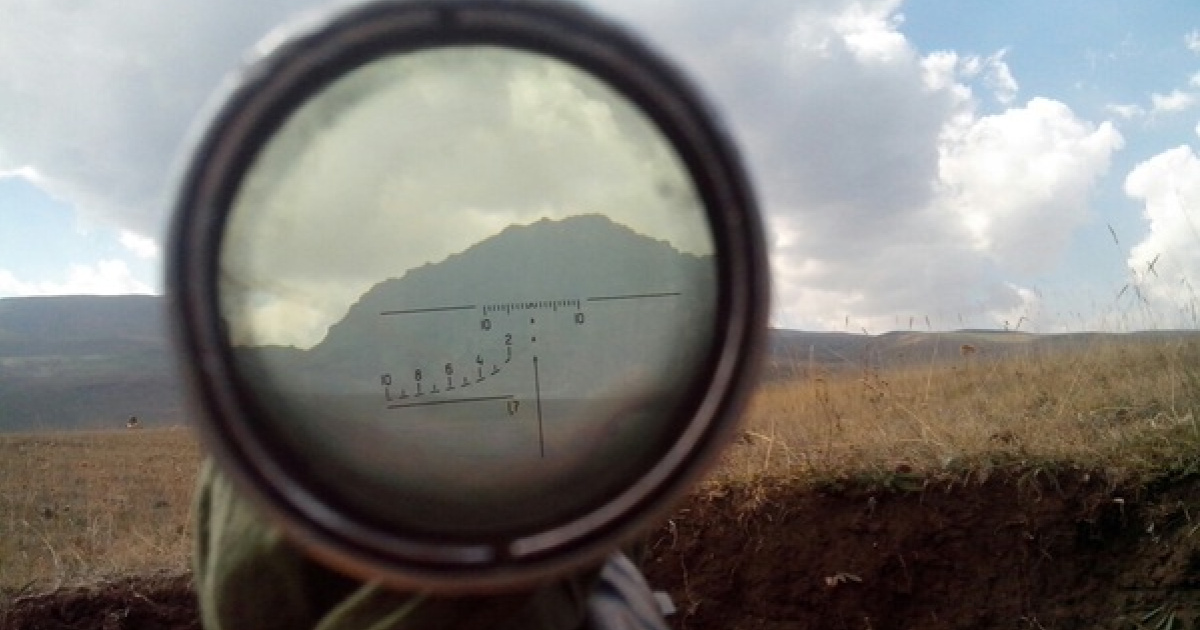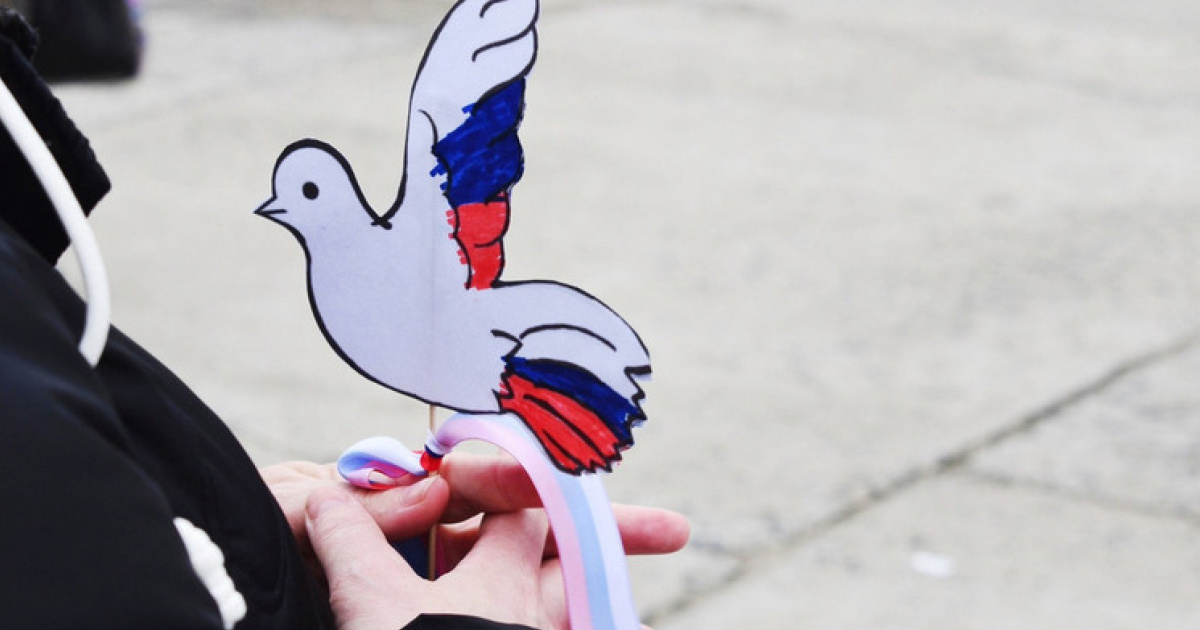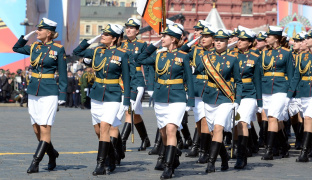- An intensification of armed hostilities in Russia, and its puppet "republics" in the Donbass, is expected to rise as Russia prepares to "stay one step ahead" of Kyiv’s alleged “planned military offensive”.
- Self-isolation continues in the "DNR" and the "LNR" as Zakharchenko, the Leader of the puppet republic, slaps "state" employees with a travel ban to Ukraine and Vodafone-Ukraine, the only mobile operator providing communication with the government-controlled territories of Ukraine, is shut down.
- "Elections of heads of the republics" planned for this autumn are fomenting internal struggles inside the “DNR-LNR”; escalation to internal, armed conflict among separatists possible.
- Continuing its hybrid aggression against Ukraine, Moscow is building-up its military power and continuing to impose the false perception that its aggression against Ukraine is in fact an internal conflict.
- International and domestic political pressure on the President of Ukraine Petro Poroshenko increases significantly amidst corruption-related issues.
Situation in the "DNR-LNR"
The intensification of armed hostilities is expected to rise. The leaders of the puppet "republics" of Donbass, Russian politicians and media, are forecasting an intensification of armed hostilities in the Donbass. The forecasts are accompanied by appeals to up readiness or "strike first". These information and propaganda operations may be an element of Russia's preparations for a real escalation.
The "DNR" leader, Alexander Zakharchenko, told journalists that it is a "near-war situation". Notably, the “DNR military enlistment offices” have commenced sending draft notices to men living in the occupied territories. Residents of Donetsk note that this is the first time that such a large-scale "verification" is taking place. The "authorities", however, deny rumors of an upcoming mobilization, asserting that "military enlistment offices are carrying out scheduled activities to check reserved citizens". An inventory of bomb shelters of the "DNR" has also been ordered by A. Zakharchenko.
At the same time, Russian political strategist, leader of the Union of Veterans of Donbass and first "Prime Minister of the DNR", Alexander Boroday commenting on Russia's withdrawal of its officers from the Joint Center for Control and Coordination, suggested, "the situation between the republics and Ukraine may worsen, and it is dangerous to leave these military officers as potential hostages...". In turn, promoting the “first-strike” option, Russian newspaper Vzglyad announced an alleged upcoming offensive of Ukrainian troops on the Donbass was being planned to reduce the electoral rating of Vladimir Putin suggesting: "It is possible to prevent the development of events in this worst-case scenario only by staying one step ahead of them. It is most likely that some preventive steps will be taken in January-February...".
The idea that, in case of intensified hostilities, Russia will have to introduce its troops to prevent the "genocide of Russians" in the Donbass is being introduced to the mass consciousness by Russian media and separatist politicians alike. Thus, public opinion in Russia and in the occupied part of the Donbass is being prepared for an escalation of the conflict with participation of the Russian Armed Forces.
Official Moscow also appears to be foreshadowing such sentiments. On January 17, the Azov Federal Highway Administration (Russia) announced the A-260, a route of federal significance bordering the occupied part of Donbass will be blocked. Further, the Russian Ministry of Defence published information on the conduct of "large-scale tactical exercises" for aircraft landing on the transport highway in the Rostov oblast and the Krasnodar Krai.
Notably, Ukrainian military experts do not exclude that, under favorable conditions, the Ukrainian Armed Forces will attempt to reconquer Debaltseve, which, according to the Minsk agreements, must be controlled by the Ukrainian government.
______
Self-isolation. One of the brightest trends in the end of 2017 and early 2018 was the continued self-isolation of the occupied regions of the Donetsk and the Luhansk oblasts from Ukraine. At the end of 2017, this trend began to manifest itself in the form of a sharp increase of queues at checkpoints on the "DNR" and the "LNR" line of demarcation. Then a "decree" of the "DNR" prohibiting "state" employees of the "republic" to travel to the free territory of Ukraine was published by A. Zakharchenko.
This trend became even more pronounced after the disconnection of Vodafone-Ukraine. Vodafone was the only mobile operator in the occupied territories maintaining contact with Ukraine. The move caused an outburst of outrage on social media sites. Whereas the so-called authorities of the "republics" accuse Ukraine of damaging the cable, this move is a clear continuation of a policy which has already led to the the seizure the national mobile operator of Kyivstar’s equipment, and the shutting down of yet another national mobile operator - Lifecell.
The disconnection of Vodafone has resulted in the massive purchasing of local mobile operators’ start packages. The local operators are not able to provide communication with Ukraine. Notably, the public outcry and level of social discontent made the occupation authorities agree to provide Vodafone with an opportunity to repair the cable and thereby restore communications. However, employees of security, "state" and budgetary structures have been banned, non-publicly, from using the Vodafone operator "in order to avoid wiretapping and detection of organizations".
The peaceful coexistence of regions with hostile ideological attitudes and different geopolitical vectors is impossible in one state. Thus, even if Ukraine fulfills the political part of the Minsk agreements, the self-isolation of certain districts of the Donetsk and Luhansk oblasts from Ukraine, and their (political, ideological and economic) integration with Russia, threatens to convert the interstate nature of the conflict into an internal one. This can result in civil war and division of the country , which is exactly what Russia is trying to achieve. This assertion is doubly strong when considered with the fact that the Minsk agreements preserve Moscow’s prospect of supporting the pro-Russian enclaves it is creating inside Ukraine.
This automatically leads to the region's integration into Russia, which makes the implementation of the Minsk agreements meaningless in terms of restoring the territorial integrity of Ukraine.
______
Escalating internal struggle within the “DNR-LNR”. In Donetsk, there was an attempt to hold early elections so that they would coincide with the presidential election in Russia. Then, quite to the contrary, a draft law to postpone the elections of "head of the republic" until 2019 was being prepared in the "People's Council of the DNR". Eventually, Zakharchenko stated that the elections would be held in the fall of 2018 and as reported by our Donetsk sources, the pre-election campaign, has already de facto begun. This is expressed both in technical training and competitors' elimination.
Their preparations are already escalating political tensions in the "DNR-LNR” and include the use of militant groups and political repressions. The head of the "People's Council of the DNR" Denis Pushilin was removed from the leadership (and financial flows) of the ruling party – "The Donetsk Republic" social movement. Then, there were repressions against people and information resources of the family of former "People's Governor" Pavel Gubarev. In the end of December 2017, Alexander Khodakovsky, the main oppositionist to Alexander Zakharchenko and creator of the Vostok Battalion wrote that units of the so-called "Republican Guard of the DNR" were notified to hold off an alleged attack of the Vostok Battalion and that "The guys were recalled from the leaves, guard details were reinforced, they were all placed in operational readiness…". He also reported that in order to fight the internal opposition, represented by him, the remnants of the Guard of Plotnitsky, numbering about 200 people, were redeployed from Luhansk to Donetsk. The leader of the Vostok Battalion admitted that, in case of a real attack against his organization, he could enter into an armed clash.
_______
Moscow is building up its military power which may be used in more operations against Ukraine. Russia continues the tactic of imposing the perception of its hybrid aggression against Ukraine as an internal conflict upon Ukraine and the world. This is perhaps best exemplified by the fact that it is obliging Kyiv and its Western partners to hold a dialogue directly with the unrecognized "republics". The secession of the Russian delegation from the Joint Center for Control and Coordination was exactly intended to promote this end by forcing Kyiv to cooperate with representatives of Donetsk and Luhansk within the JCCC. Then, the Russian party positioned the exchange of prisoners and hostages as the result of "negotiations between Ukraine and the "DNR-LNR". This unconstructive position leads to the preservation of the conflict in its hot phase. It also negates the restoration of peace in the region through the introduction of the UN peacekeepers.
On this note, Moscow is also trying to force Kyiv and Washington to coordinate the ethnic composition of the UN Peacekeeping Forces with the puppet "DNR" and "LNR". Corresponding statements in the reporting period were made by Russian Foreign Minister Sergey Lavrov. This unconstructive demand torpedoes and discredits the very idea of a peacekeeping mission, since it is initially unacceptable for the Ukrainian and the American parties.
Geopolitical factor
In attempting its strategy of taking over Ukraine, Moscow prefers "politico-diplomatic" tactics (which it partially implements through the Minsk agreements) but it does not reject a military scenario.
In 2018, 23% of the federal budget of Russia was allocated for defense, 11.57% - for national security and law enforcement activities and 17.6% - classified. In other words, the Russian Federation allocated 52.17% of its budget to security and defense. This appears to be a budget of a state preparing for a big war.
Since 1 July 2017, the authorized strength of the Armed Forces of the Russian Federation has been increased to 1 million 903 thousand people, the Ministry of Internal Affairs – 900 thousand, the FSIN – 350 thousand, the Ministry of Emergency Situations – 300 thousand, the Border Guard – 100 thousand, the FSB, the FSO and private armies – classified. In accordance with the Decree of the President of the Russian Federation authorizing this expansion, the Russian Federation can create an army of 2-3 million people within a short time even without large-scale mobilization.
Furthermore, Putin signed a law which allows for men with limited health capacity to be drafted to military service. In individual cases – this even includes citizens with disability.
In Crimea, the Armed Forces of the Russian Federation deployed two new S-400 Triumph anti-aircraft missile systems, one in the north of the peninsula and the second near the city of Sevastopol. The S-400 reaches aerodynamic targets at the distance of up to 400 kilometers.
Furthermore, Gazprom is forcing the construction of Nord Stream 2, Turkish Stream and the Power of Siberia gas pipelines. The Kremlin's hasty attempts to diversify gas supplies and its routes are connected with probable military plans, since there is no economic justification for such hefty spending. Nord Stream 2 will, however, undermine the Ukrainian economy (thereby its socio-political situation) and will also clear the way for full-fledged military aggression.
The following are some of the main geopolitical and intra-Ukrainian factors determining whether or not the Kremlin will decide on direct military aggression:
- The prospect of a pro-Russian candidate (or the reelection of Poroshenko) in the May 2019 presidential elections in Ukraine. The victory of a candidate not connected to corruption, oligarchy or obligated to Russia may increase the likelihood of intensified military aggression;
- The West's readiness to support Ukraine with representatives of its armed forces in case of direct aggression of Russia. The Kremlin will not dare to enter into direct conflict with representatives of the Western armed forces;
- The involvement of the USA in a direct armed conflict with North Korea.
_____
The Head of the Russian delegation to Minsk Contact Group, Boris Gryzlov, identified the cessation of the economic and transport blockade of the "LNR-DNR" by Ukraine as one of main Russia’s main goals in Minsk. This indicates the effectiveness of the blockade in terms of the enemy’s economic exhaustion and the formation of a hostile socio-economic background in the occupied territories.
Ukrainian domestic political factor
Pressure on Poroshenko increases significantly. The West’s demonstrative cooling towards Poroshenko is weakening his domestic political situation. Considering that he is the only top politician in Ukraine adamantly defending the need to comply with the Minsk agreements, he weakening power reduces the possibility of Ukraine implementing them.
The situation within the ruling coalition has also worsened during the reporting period. Disclosures of damaging material on the leaders of the Petro Poroshenko Bloc and the People's Front (i.e. Arseniy Yatsenyuk and Petro Poroshenko), were connected to each other. At this time, it is difficult to conclude how reasonable the mutual suspicions are, but this time, the conflict was even brought to the public playing field. In particular, after the announcement of the sale of his share in Espreso TV and numerous accusations that the former prime minister was involved in financial fraud, Yatsenyuk retaliated by publishing a post on Facebook. It contained a broad hint that Petro Poroshenko, who had sold Ukraine Media Holding group to oligarch Serhiy Kurchenko in 2013, did so without payment of taxes to the budget of Ukraine.
The aggravation of relations between the coalition partners also manifested in the course of preparation for voting on the bill, declaring Russia an aggressor, and the territories it controlled in the Donbass – occupied. The People's Front threw out all references to the Minsk agreements from the President's bill and made a number of amendments that changed its concept. Thus, the People's Front provided legal conditions when all responsibility for the course of the war fell on the President even without imposing martial law. This can be a very effective instrument against Poroshenko during the forthcoming election campaign.
Moreover, the reputation of Petro Poroshenko in the West deteriorated. His attempts to block the work of the national anti-corruption bodies and the creation of the Anti-Corruption Court, as well as expository publications in the world media (Al Jazeera about Yanukovych's money), led to calls by Western politicians and the media to stop support for the corrupt president.
Realizing he may be prosecuted in case of his loss of or withdrawal from power, Poroshenko is leaving all the options open on how he can win the next presidential election or leave the successor. All of his further actions will be directed exclusively at these goals.
This leaves only two options open: either he (for the sake of expectations and moods of the electorate) will push the Minsk agreements aside and begin the effective liberation of Donbass; or, hoping for Moscow's support, he will begin to implement the political part of the Minsk agreements, which will cause a strong social protest in Kyiv.
Whereas the first option may provoke Russia's response, the second may lead to a heavy-handed option for a change of power in Ukraine.
The West does not benefit from either of these options, as they can lead to the intensification of the military conflict between Russia and Ukraine. To avoid such a scenario, it is necessary to increase the sanctions and other pressure on Russia to force it to agree to the revision of the Minsk agreements, taking into account the interests of Ukraine and the search for real mechanisms for ending the war.
Centre for research of Donbass social perspectives
The review was prepared with the support of GPD Charitable Trust




